'This is the end... as we know it'
The best film endings...
Whether it's a character that walks/rides into the distance, going back into society/continuing their journey, or a character that simply 'closes' the door, film endings are as equally if not the most important part of the film in emphasising not only meaning to the characters we see on display, but also themes that give us the definitive finale; either in a eerie or positive nature. Granted, the majority of films that are out their at the moment, and even in the past years, don't necessarily have the best endings, that's just my opinion. Despite this however, there's no denying that that best endings makes us want to watch more of cinema's past. Using my own personal experience as an example, a common trope of Christopher Nolan's film endings, always leaves us questioning the stories outcome and being ambiguous. Although I had already went and watched the more critiqued and talked about films of this era, Nolan's films did essentially lead me to more of the French New Wave films that employ endings that leave us wanting more. In this rather one-off Blog Post, today, I'm going to go through film endings that leave off a good note. It will be a mixture of my personal favourites and film endings that have been discussed on several occasions by film enthusiasts and what not, So, without further delay, lets do this!! (Warning - SPOILERS)
Like with Kubrick, I told you Nolan would be here on this list again! haha. and yeah, it was kind of obvious to which film I would be talking about that Noland has directed... no, not The Prestige, Inception, with all of its confusion and debate right at the very end. Even to this day, my parents admit that they don't even understand it, in terms of whether Cobb is still dreaming with his totem spinning on the table, or whether he's back in reality. Nolan simply loves to fool as with the very last frame and makes us doubt what is real, and what isn't...
Very much echoing Satoshi Kons Japanese animation of Perfect Blue, Darren Aronofsky devices up Black Swan, a psychological story revolving the character of Nina, who is auditioning for the production of Swan Lake. It's a film that metaphorically taps into the anxiety of the performer, the entertainer who lusts for attention and is also crooked as well. The ending see's us watching Nina fighting her inner demons, resulting in Nina accidentally stabbing herself before her big performance. it ends in a rather spooky fashion, with Nina delivering her performance as the White Swan which see's end the tale by saying - "I felt it. Perfect. It was perfect."...
FINALLY, I have a film that doesn't involve something serious that involves death or lobotomy. But you can't deny, if you're someone who's my age or slightly older/younger, you'll know that Toy Story 3's ending was a good way to end your childhood memories... or so it should have done if it wasn't for the fact that Pixar are doing Toy Story 4 now! But, regardless of that, Toy Story 3 was rather sad and touching way to say 'goodbye' to the characters of Woody and Buzz Light-year...
Our last film entry on this list is indeed Peter Jackson's Return of the King, a film that I think gets wrongly criticised for how many tines the story could have ended. While I understand that point in case, how can you reject the ending that this film gives us in return? A touching ending which see's a few of the character, like Frodo and Gandalf, leaving towards the undying lands and Sam, Merry and Pippin sobbing like they were babies that got their lollipop stolen or something. For me at least, the ending just reflects in my mind, how may great moments and sequences there were in Jacksons fantasy trilogy and will stand the rest of time for how good they are to watch...
Right, that about concludes this film endings list. Now I know I don't have films such as The Godfather, Se7en, The Searchers, heck, even the ending to Monty Pythons Holy Grail could have been on this list! Simply, I didn't want to make a huge list which would result in me dying with no fingers left. So, what I would be intersting is, what is YOUR favourite film ending? If you have one, please feel free to drop a comment down below. Thank you to those who have enjoyed reading my latest Blog Post and I hope to be doing more of these Blog Posts in the future. I will be back later in the week with a brand new film review. So until then, enjoy your week and Adieu!! :)
Alex Rabbitte
SAW - James Wan, 2004
Even though the rest of the films are questionable, in terms of their overall quality, The first SAW film is arguably the best of the bunch. Why? Well, not only does it keep you, the audience member, guessing with subtle clues and story-telling that is seems straightforward with a psychotic 'killer', Jigsaw, setting up death traps for his victims, the ending does pay good tribute to the idea of a twist ending. As the story unfolds, it's understood that Jigsaw is a crazed hospital orderly and is revealed to be the bloody, lifeless corpse that's been lying in the room where the two victims have been trying t escape all this time, in dramatic fashion of course. What is just so good about the ending to this first instalment, is how original it was with it's use of dramatic music and how you see everything unfold through flashbacks and the remaining victim figuratively leaving his jaw dropped. I guess you can't blame the victim though right?
Ex Machina - Alex Garland, 2015
Moving into one of my personal choices now is one of last years best films in Ex Machina, directed by Alex Garland. As many may well remember from my review of this film, Ex Machina was a film that overall was just refreshing to watch. Despite that it tackles an old and favourite sci-fi idea of Artificial intelligence and what not, there is a lot of things that coalesce with these recognised themes such as character depth and interaction with the three only individuals that we see. Garland, previously being under the wing of Danny Boyle writing 28 Days Later, very much knows how to engage the viewer on a mental and emotional level, and the ending to this thriller certainly has harnesses Garlands intricacies. Just as it seems that Caleb will leave with the artificial being that is AVA, who killed her creator Robert, this rather clever robot pulls a 180, by leaving Caleb trapped in Roberts super mansion, and leaving to a world where infinite possibilities are available to her...
One Flew Over The Cuckoo's Nest - Milos Forman, 1975
I mean, there are a lot of performances that people can pick and say that 'this was Jack Nicholson's best film' and things, but Nicholson's performance in Milos Formans film in One Flew Over The Cuckoo's Nest, stands as one of his best. Playing as R.P. McMurphy, Nicholson's on-screen antics, portraying a character that strips all normality of the mental institution and introduces the other patients to raucous poker games, unauthorized group 'field trips' and one alcoholic and drug filled party, is a must see performance for just how comedically he balances the serious and funny themes. The way the film ends, with the 'Chief' noticing lobotomy scars on McMurphy's head and killing him with a pillow which leads him to escaping as McMurphy previously pointed out, certainly adds weight to this human element of the film...
Bonnie and Clyde - Arthur Penn, 1967
A film that arguably brought back this new cinematic age to Hollywood in the 60's, Arthur Penn's classic about famed bank robbers, Bonnie and Clyde, pushed the boundaries when it came to delivering sex and violence on the silver-screen. The criminal couple, throughout, are two peas from the same pod, they get each other. But reality hits hard... really hard for both of them whilst driving into an ambush to be ripped apart by an onslaught of machine gun fire. The ending sequence is worth noting in this list simply because of its acute editing techniques. Beginning with rapid fire cuts between facial expressions and scenery and coupled with the slow motion shots of the couple's bodies flailing to the tune of machine gun fire, Bonnie and Clyde's hard-hitting finale is a must watch gruel...
Fight Club - David Fincher, 1999
I'm not going to lie, this film does take me back to my A-Level years, when we basically had to do an exam question on David Fincher's adaptation of Chuck Palahniuk's that involves Edward Norton playing an unnamed insomniac who meets Tyler Durden, an anarchist soap-maker who doesn't play by any rules. While the narrator and Tyler hit it off well, by living together and start a new club together, a new direction for Project Mayhem ignites a familiar unhappiness with the narrator and so confronts Tyler. but the narrator is Tyler!! *gasp. Or at least a dissociated version of the narrator is dormant to him now because of his extreme insomniac ways and his efforts to be a mass consumer in Ikea furniture, and also a sexually frustrated male (*wink to all college film study guys! haha). Just when the narrator thinks he has solved the problem, by shooting himself and 'killing' Tyler, the world around him beings to crumble, both figuratively and literally...
Kids - Larry Clark, 1995
Another film example that I firstly watched back in college, Kids, directed by Larry Clark is probably one of these films that the majority won't have heard of, but surprisingly is an intersting take at looking at the 90's from a different teenage perspective. While from the poster it seems light-hearted and comedy friendly, was is noticeable throughout Kids, is the darkness it can uphold, and this is specifically present right at the end of this tale which see's the main group of teens travel around New York City skating, drinking and smoking and losing their virginity. What stands out about the ending is how drastically different it becomes to what you see in the film; starting off as a montage sequence that bleakly displays peoples lives in New York and adds this certainty of melancholia to the film, especially with the music. Then is swiftly cuts to the aftermath of the party, that the group of teens went to, of which we hear a quote from the main character explaining what life means for him. It's definitely one of these films that I would recommend in watching...
The 400 Blows - Francois Truffaut, 1959
Probably one of the first films that cemented and forged the French New Wave of the 60's, next on this list is Francois Truffaut's The 400 Blows and it's ever subtle, haunting freeze-frame. This semi-autobiographical pic follows Antoine Doniel, a young misfit who's neglected by his parents, school and the legal system. It is near the end when Doniel finally has had it with the adults and their constant failings towards him, and sets of running towards the ocean, as he has always dreamed, and eerily turns back to the lens. The camera captures Doniel in a rather spooky freeze-frame, metaphorically rapping him in adolescence while zooming in to leave him no space to move. The tactics employed here, largely uncommon at this time, is widely considered to symbolize death. death of innocence and a secure future in Antoine Doinel's case...
A Clockwork Orange - Stanley Kubrick, 1971
Of course, we're going to mention Stanley Kubrick down the line in this list, and I'm probably guessing that most people know what other Kubrick film I'm going to mention. But , I did also want to add Kubrick's later work of A Clockwork Orange first, a film that stars Malcolm McDowell as Alex, a murdering rapist who is forced into government-backed science experiments to control his inhibitions. Becoming vulnerable after being 'cured' and almost being killed by Mr.Alexander, Alex ends up in the hospital and is offered to be taking care of by the Minister of the Interior, who used Alex as a publicity tool. But is in Alex's fantasy, where he is frantically flailing around on the floor with a naked woman while a Victorian-era audience attire applauds him where his true intentions and feelings are know. It's a provocative image of free-will from a director who knows how to challenge his audience and what they find acceptable...
The Dark Knight Rises - Christopher Nolan, 2012
Again, like with what I said with Kubrick, obviously I'm going to mention another one of Christopher Nolan's films down the line of this list, but I did want to also add his other best work of The Dark Knight Rises into the fray. While it can be arguably said that the previous production of The Dark Knight in 2008 is a much better film, The Dark Knight Rises certainly ranks up their in being one of the better Superhero films to go back and watch. Nolan sports and ending that fits well with the character of Batman, with the Dark Knight himself saving Gotham from a Nuclear bomb of which he carries out to see and blows up along with him... or not. Nolan cheekily makes us think twice as even though it's logically assumed that Batman died along with the bomb exploding, he is once again seen by Alfred in the restaurant which indicated to us that he's alive...
Citizen Kane - Orson Welles, 1941
Considered to be of the best films to have been made,Citizen Kane is a film that also employs the cinematic device of a twist ending. Directed and starring by the same person, Orson Welles plays Charles Foster Kane, a rich newspaper magnate who would cycle through possessions and women throughout life without ever finding satisfaction. His last words of "Rosebud", inspires a reporter to discover its meaning, a search that the audience don't get knowledge of until the films very last moments. Sorry to spoil it for you all, but "Rosebud" is the sled on which an 8 year old Kane played on the day that he was taken from his home in Colorado. We see the sled in the dying breaths of the film; a tracking shot which slowly hovers over Kane's possessions like the film does over his entire life, and focuses in on objection of Kane's affection...
No Country For Old Men - Joel and Ethan Cohen, 2007
Winning Best-Picture at the Oscars in 2007, Joel and Ethan Cohen's No Country For Old Men is a certainty ending that leaves people questioning the ending; in determining what was and what wasn't real. After Ruthless assassins Chigurh is presumed to get away with the money, Sheriff Ed Tom Bell recounts two dreams he had. The first involves him losing money his (now dead) father gave to him, and the other has his father riding a horse ahead of him on a mountain pass, setting up a fire in the distance and waiting for him. Then the films ends, with Tom saying "And the I woke up" with a quiet ticking clock going off in the background, nothing more. While it's plausible that many may be underwhelmed by the vagueness of this climax, it's intersting determining the meaning behind these last moments of the film. The lost money could determine the characters current state, and his father riding up ahead could be a self-reflection of Bell's own age and death...
Shutter Island - Martin Scorsese, 2006
Being one of my personal favourite Scorsese films, Shutter Island is your simple Thriller-noire tales that throughout, consistently sets up clues and hints for the audience to piece together. Leonardo DiCaprio stars as U.S. Marshall Edward "Teddy" Daniels who is investigating a psychiatric ward on Shutter Island, where one of the patients goes missing. It's also the island where Teddy tracks down Andrew Laeddis, a local arsonist who killed Teedy's wife, but aren't Laeddis and Teddy the same person? Yes, near the last moments of the film, it is known that Laeddis and Teddy are one in the same, and that DiCaprio's character did indeed murder his own wife and kids. The ending takes on a intersting twist, with Laeddis being 'cured' and talking to Dr.Sheehan by giving him a rather thought-provoking rhetorical question: "Which would be worse - to live as a monster, or to die as a good man?"...
The Usual Suspects - Bryan Singer, 1995
In the densely plotted and clever The Usual Suspects, a small-time weak and disabled "verbal" Kint recounts a complicated tale of a botched heist to an increasingly agitated customs agent, alluding to a mysterious Keyser Soze as the enigmatic figure behind the ordeal. Unable to convict Kint of anything, Agent Kujan lets him go free, and Kint's stroll towards a new life starts off in a limp, but brilliantly, culminates into a straight leg walk... he is Keyser Soze. It's a rather subtle yet tense ending, with Kujan figuring out that nearly every detail in Kint's story was lifeted, by name, from various knick-knacks in the agent's office. It all neatly and nicely closes together with Kujan with ate, looking for Kint/Soze who ends the film with a perfect line - "The greatest trick the Devil ever pulled, was convincing the world that he doesn't exist; and like that, he's gone."...
2001: A Space Odyssey - Stanley Kubrick, 1968
I told you Kubrick would be making another appearance on this list, and you guessed it, his film, 2001: A Space Odyssey, is one of those endings and film, that you have to watch again and again to properly understand it. In disconnecting Hal, Bowman leaves Discovery One in an EVA pod to investigate the monolith, a machine built by an unseen extraterrestrial being. After venturing out of a vortex filled with light and colour, He finds himself, still in the pod, viewing older versions of himself, with one formally dressed and eating dinner, and another lying in a bed. A black monolith appears at the foot of the bed, and as Bowman reaches for it, he is transformed into a fetus enclosed in a transparent orb of light. For sure, Kubrick's much discussed sci-fi production is one up for discussion and really, is an ending that doesn't necessary hold one specific answer; all soughts of interpretations are applicable...
The Departed - Martin Scorsese, 2006
The Departed simply holds no punches, making you view different and rather interesting perspectives. After undercover cop Billy Costigan has been killed and undercover mobster Colin Sullivan has seemingly gotten away with his scheming, suspended Sgt. Dignam lies in wait at Sullivan's apartment. Evidently, Sullivan is shot dead by Dignam, who was smart enough to wear paper boots to cover his tracks. Then a rat walks along the window frame... because symbolism. While Scorsese's crime classic veers away from the original Honk Kong source material, with the original letting the Matt Damon character live, this 2006 re-doing still delivers as it does feel satisfying to watch, and as an audience member, you feel that you deserved an ending that the 'good-side' win for once...
Planet of the Apes - Franklin J. Schaffner, 1968
While I'm aware, the ending to Planet of the Apes comes to serve as common knowledge for most people reading this, you do have to imagine who people of 1968 felt, when they were the first ones to watch this films ending and become psychologically melted afterwards. The film reovles around an American Astronaut who crash lands on a distant planet that's inhabited by talking and civilized apes, and everything about it says that the setting is located somewhere else in the galaxy. Yet, it is only when Taylor the astronaut and cave women Nova ride off on horseback, that Taylor notices a large object sticking out of sand, the top-half of the Statue of Liberty. He's been on a future, post-nuclear version of Earth all along...
12 Angry Men - Sidney Lumet, 1957
If you've never watched this film... then I can't help you. HA, Just kidding, although it is a film that is worth watching. Sidney Lumet's 1957 film is a trail story that tells the story of a jury made up of 12 men as they deliberate the guilt or acquittal of the defendant basis of a reasonable doubt. Throughout, no names whatsoever are used, the jury members are identified by number until two out of the 12 exchange names at the very end. The only thing that most people unappreciated about this film, is perhaps the ending since the film delivered in exploring different mind-sets and scenarios of the characters that we see constantly. The ending to this film actually embarks on the much popularised Western ending, where we see the characters leave into the distance and are re-introduced to the world in a triumphant state, it's a cinematic queue which states that the story is over. The men all leave into the world where the American judicial system works and people are only convicted if they actually committed a crime. It's a comforting ending and it complements this idea even the most stubborn-people can listen to reason and change their minds...
Psycho - Alfred Hitchcock, 1960
Moving from one side of the emotional spectrum to the other, next is Hitchcock's Psycho, a film that at the time of the 60's, actually didn't receive well-rounded plaudits. It's a film that over-time, became a 'classic' if you will. I'm sure by now everyone knows of Psycho's story, with Norman Bates being a crazed-lunatic and all. One of the reasons why Hitchcock's horror/thriller is highly praised, is down to the techniques and meanings behind them. The ending is a good case-in-point. Most people remember the look on Norman Bates' face, with him looking at the lens in such devilish confidence that true evil never wanes. But the true ending is with the car getting pulled out of the mud, leaving a bad taste in our mouths because we know what's inside the back of the car. It's also filmed-off centre and its coming right towards the camera...
Inception - Christopher Nolan, 2010
Like with Kubrick, I told you Nolan would be here on this list again! haha. and yeah, it was kind of obvious to which film I would be talking about that Noland has directed... no, not The Prestige, Inception, with all of its confusion and debate right at the very end. Even to this day, my parents admit that they don't even understand it, in terms of whether Cobb is still dreaming with his totem spinning on the table, or whether he's back in reality. Nolan simply loves to fool as with the very last frame and makes us doubt what is real, and what isn't...
Black Swan - Darren Aronofsky, 2011
Very much echoing Satoshi Kons Japanese animation of Perfect Blue, Darren Aronofsky devices up Black Swan, a psychological story revolving the character of Nina, who is auditioning for the production of Swan Lake. It's a film that metaphorically taps into the anxiety of the performer, the entertainer who lusts for attention and is also crooked as well. The ending see's us watching Nina fighting her inner demons, resulting in Nina accidentally stabbing herself before her big performance. it ends in a rather spooky fashion, with Nina delivering her performance as the White Swan which see's end the tale by saying - "I felt it. Perfect. It was perfect."...
Drive - Nicholas Winding Refn, 2011
Arguably being one of my favourite films that I've watched, Refn's Drive succeeds in creating a visual yet gripping contextual experience. While Ryan Gosling's character hall-marks back to the strong and stubborn characters of Taxi Driver, the film poeticalness at the end nicely balances with the main lead. The ending see's us with Driver, after stabbing heist kingpin Bernie in the neck, then drives away with a song playing in the background that complements the construction of the Driver character. Like most examples on this list, the ending leaves us with an ambiguous taste, with the Driver driving off into the night, closing the film and making us suggest that he's either died or is still alive, leaving Irene disheartened...
In Bruges - Martin McDonagh, 2008
Not an example that you thought you might see is it? But don't be fooled, McDonagh's In Bruges is film that definitely goes in this list of mine. Not just because it is a film that I like, but also has an ending that weirdly and therapeutically, ends in a calm way despite it having wild laugh and sequences and action, blood and fowl language. The ending see's us with a rather Humorous and boisterous Ray, played by Colin Farrell, who is essentially hunted down by Ralph Finnes' character for doing an unforgivable act. What is intersting is how it ends similarly to the beginning of the film, with a monologue from Ray on how much he hates Bruges and see's as hell "or something". It also kind of ends in similar fashion to Black Swan, with the lead role looking up in first person perspective, and Ray going on about how he hopes he doesn't die...
Toy Story 3 - Lee Unkrich, 2010
FINALLY, I have a film that doesn't involve something serious that involves death or lobotomy. But you can't deny, if you're someone who's my age or slightly older/younger, you'll know that Toy Story 3's ending was a good way to end your childhood memories... or so it should have done if it wasn't for the fact that Pixar are doing Toy Story 4 now! But, regardless of that, Toy Story 3 was rather sad and touching way to say 'goodbye' to the characters of Woody and Buzz Light-year...
LOTR: Return of the King - Peter Jackson, 2003
Our last film entry on this list is indeed Peter Jackson's Return of the King, a film that I think gets wrongly criticised for how many tines the story could have ended. While I understand that point in case, how can you reject the ending that this film gives us in return? A touching ending which see's a few of the character, like Frodo and Gandalf, leaving towards the undying lands and Sam, Merry and Pippin sobbing like they were babies that got their lollipop stolen or something. For me at least, the ending just reflects in my mind, how may great moments and sequences there were in Jacksons fantasy trilogy and will stand the rest of time for how good they are to watch...
Right, that about concludes this film endings list. Now I know I don't have films such as The Godfather, Se7en, The Searchers, heck, even the ending to Monty Pythons Holy Grail could have been on this list! Simply, I didn't want to make a huge list which would result in me dying with no fingers left. So, what I would be intersting is, what is YOUR favourite film ending? If you have one, please feel free to drop a comment down below. Thank you to those who have enjoyed reading my latest Blog Post and I hope to be doing more of these Blog Posts in the future. I will be back later in the week with a brand new film review. So until then, enjoy your week and Adieu!! :)
Alex Rabbitte




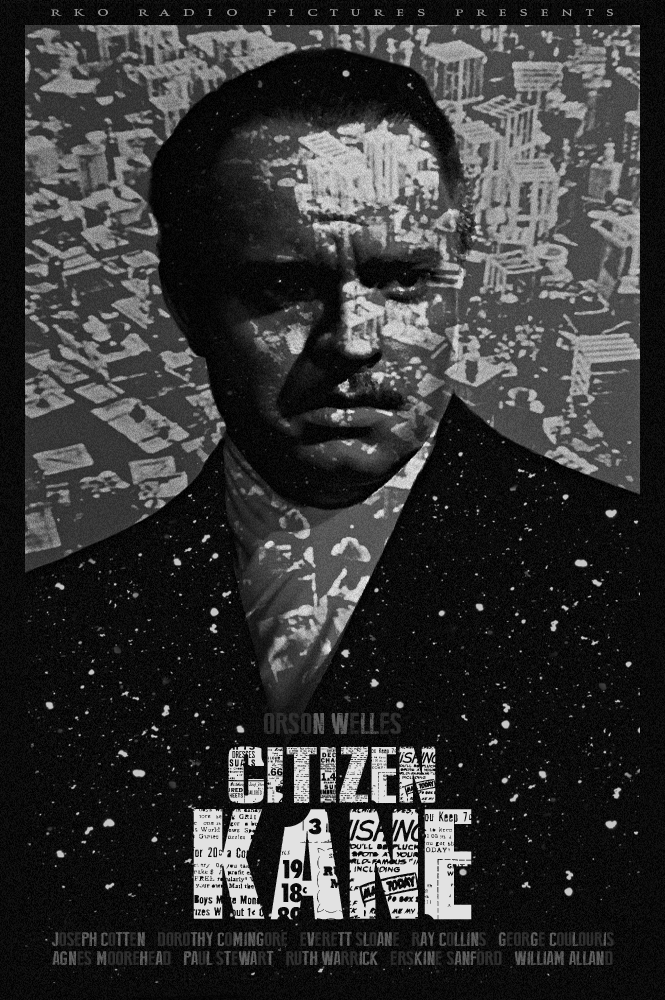

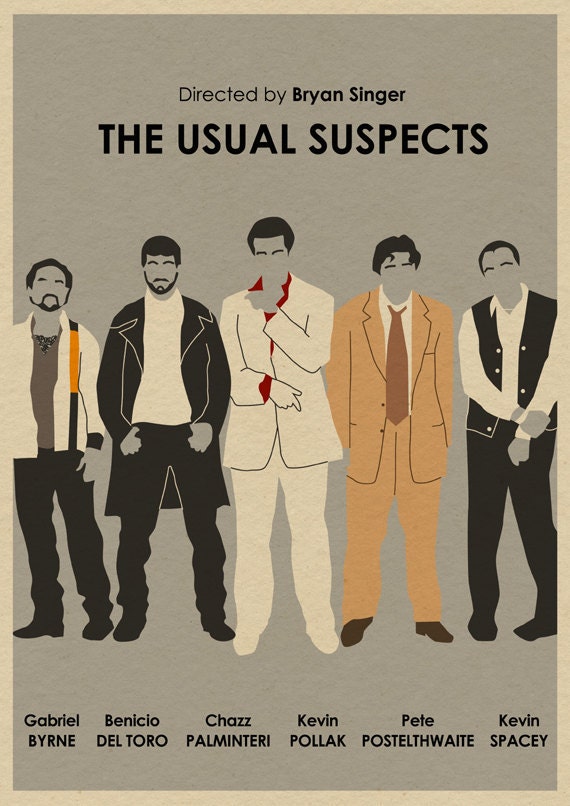
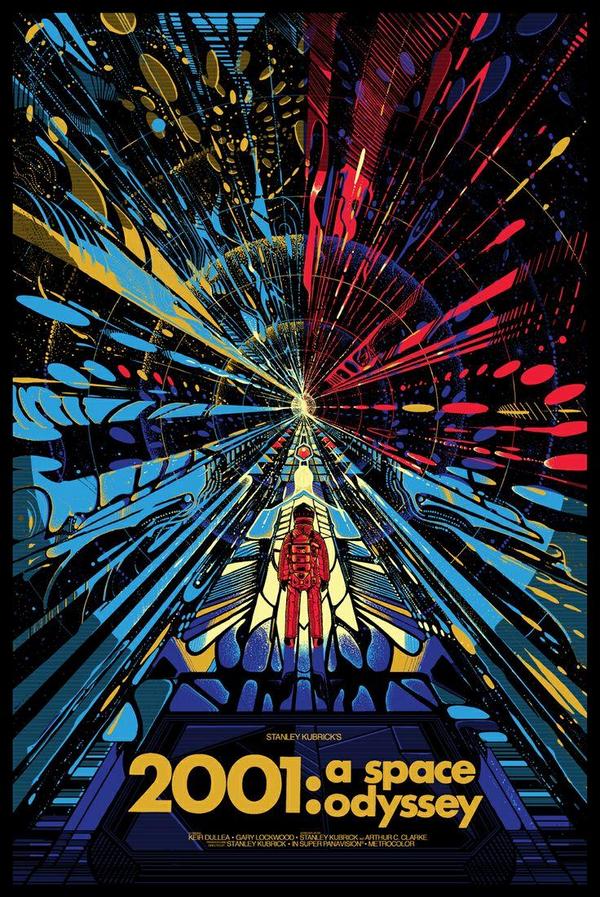
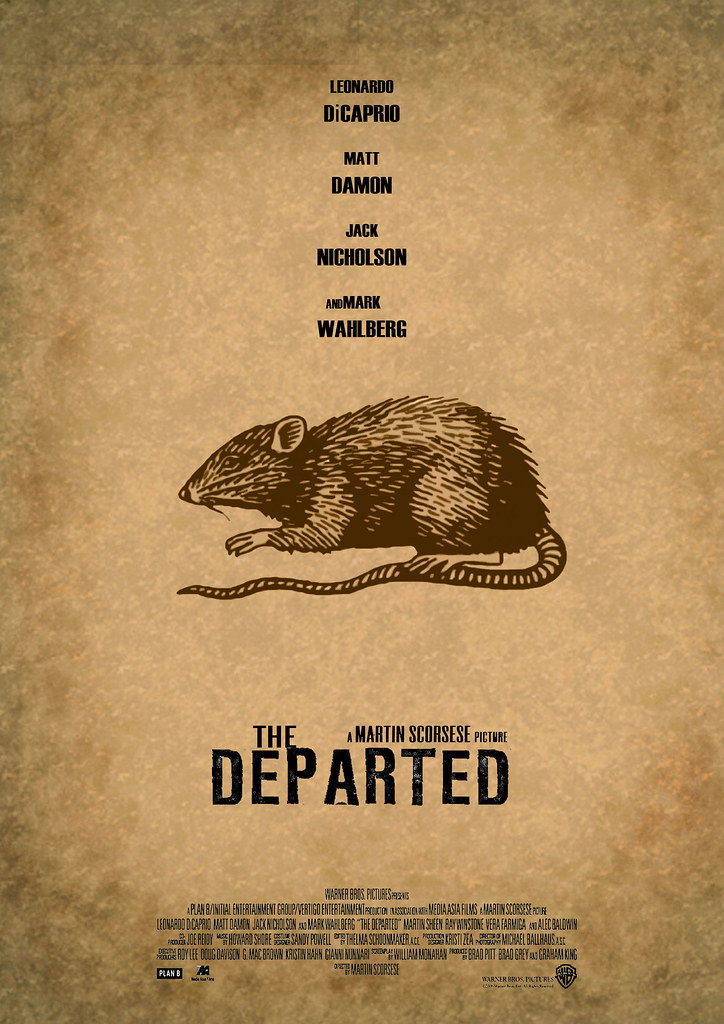

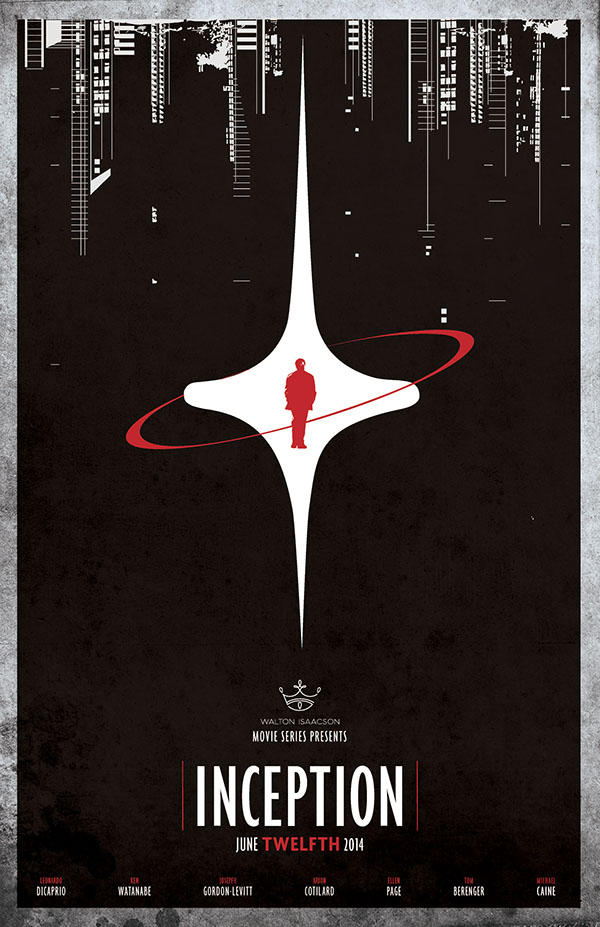


Comments
Post a Comment